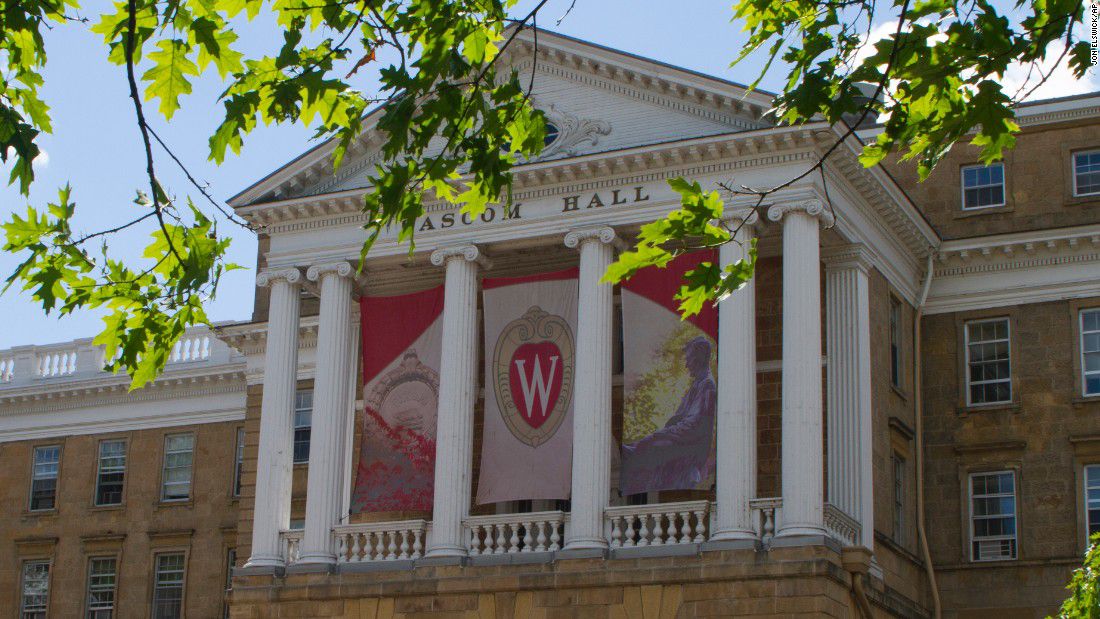MADISON, Wis. (SPECTRUM NEWS) — For Jack Phillips, the past couple of weeks have been, simply put, “chaotic.”
A second-year Ph.D. student at UW-Madison, Phillips has been juggling their virtual classes as a teaching assistant, in-person neuroengineering research, and, in the midst of COVID-19, a personal effort to share knowledge about the virus and the school's “Smart Restart” plans.
“I'm just a humble neuroscientist, but I can read data, and I can tell people what that data means,” Phillips says. “And I hope that an informed public can make better decisions.”
Since mid-August, Phillips and other graduate students have been trying to inform their feeds with a series of explanatory Tweets. In their threads, tagged #GuerillaPublicHealth, the students have unpacked different types of coronavirus tests, discussed 6-foot social distancing guidelines, and raised concerns about the quickly multiplying cases on campus.
The goal is to help people who may not have scientific backgrounds make sense of all the information — and misinformation — coming out of the pandemic, Phillips says.
And in addition to general information about COVID-19, much of the effort has been focused on the specific policies at UW-Madison, says Sarah Rains, another second-year Ph.D. student who’s helped with some of the threads.
“We’re trying to make sure that people are aware of policies that are coming from UW as well, and into the science behind those,” Rains says.
Both Rains and Phillips say they’ve had misgivings about the university’s back-to-school plans. Along with other grad students in the biomedical engineering department, they sent a letter to the administration Aug. 12 detailing a list of questions and concerns.
The letter’s 75 signatories requested more transparency from the school “as scientists and engineers who work with biological data and design solutions to medical problems.”
However, Phillips says they still haven’t gotten answers to a lot of the questions raised — like how the school would deal with potential false negative rates from coronavirus tests, or whether the testing and contact tracing infrastructure would be able to support the influx of demand.
“The concern was that this plan wasn't focused on eliminating this virus,” Phillips says. “The response from the federal government, the state government … and now from the school administration, has been to just accept and live with a background of death and disease.”
Since classes started a little over a week ago, more than 1,700 staff and students have tested positive for coronavirus at UW-Madison. In the past week, administrators have moved all classes online and placed multiple dorms, fraternities, and sororities under quarantine.
Campus administrators have said that in-person socializing between undergrad students has been a major cause of the spread, and UW System Interim President Tommy Thompson said the choice to move to online learning was made out of “an abundance of caution.”
“UW-Madison has taken extraordinary measures to prioritize the health and safety of our students, faculty, and staff while facilitating some form of in-person activity this fall,” UW-Madison Chancellor Rebecca Blank wrote in a Monday statement announcing the increased restrictions. However, she acknowledged, “we knew that no plan would be risk-free in the current environment.”
But Rains says it’s been frustrating to see how many people have gotten sick, while the grad students have been predicting for months that the return to campus would be a problem. She says raising these concerns has felt like “shouting into the wind.”
“On the one hand, you have all of these experts, all of these scientists … that are saying it's not safe to reopen college campuses,” Rains says. “And on the other hand, you have UW who is saying, ‘No, we'll be different from all the other universities that have failed before us. It's going to be safe for us to reopen.’ And I think it's really hard to reconcile.”
Other graduate students had also directly advocated for changes to the restart plan. The Teaching Assistants’ Association — the labor union for the school’s graduate student workers — released demands over the summer for a “Safe and Moral Restart,” which would include keeping students away from campus until surrounding Dane County went two weeks without reporting any COVID-19 cases.
Rains says she thinks the university will end up shutting down the campus at some point. In the meantime, she and other students are feeling “sad, disappointed, and a little bit scared” as they wait to see what happens.
Phillips says they’re also feeling “jaded” about the school’s response. For now, they plan to continue their #GuerillaPublicHealth efforts and encourage even more types of experts to share, from those with academic backgrounds in public health to dining hall workers or undergraduate housing staffers with firsthand experience.
“Ideally, I want to just reach people in the community that need to be informed about what the university is doing, whether that's the university community or Madison and Dane County at large,” Phillips says. “And then hopefully get seen by administrators and people that are making decisions.”



